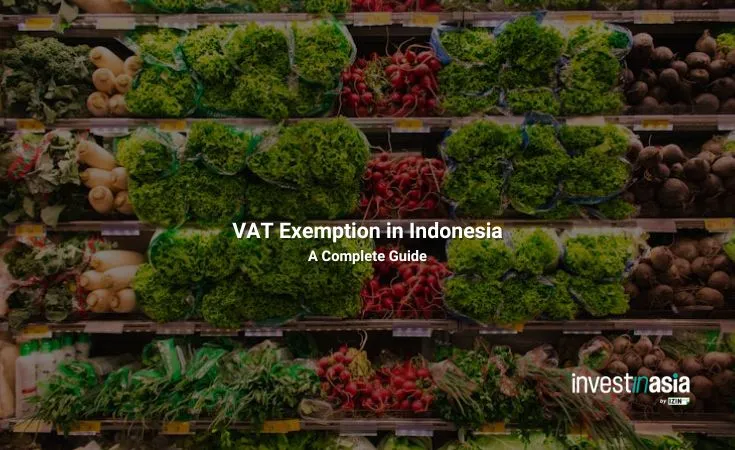Indonesia’s Value-Added Tax (VAT) system plays a crucial role in the country’s fiscal policy. However, certain goods and services qualify for VAT exemption to support economic stability, social welfare, and international cooperation.
This article explores the scope of VAT-exempt goods, key regulations, and the impact of fiscal policy reform on businesses and consumers.
Also read: Indonesia’s PPN (VAT) Guide: 2025 Regulation, Rates, Calculation
Why Does Indonesia Offer VAT Exemptions?
The Government of Indonesia, through the Ministry of Finance, grants VAT exemptions to specific sectors to ensure affordability and accessibility. These exemptions generally apply to essential goods and services, including basic food commodities, healthcare, education, and public service exemptions.
Additionally, exemptions extend to transactions involving Perwakilan Negara Asing (PNA) and Badan Internasional (BI) under international tax agreements. This policy aligns with global diplomatic norms, ensuring that foreign representatives and international organizations operating in Indonesia receive tax relief.
Goods and Services Exempt from VAT


As outlined by the Government of Indonesia, the following items and services are exempt from VAT:
Essential Goods
To keep basic needs affordable, certain essential goods are VAT-exempt, including:
- Rice, eggs, meat, vegetables, fish, and fresh milk
- Sugar for household consumption
Also read: Understanding Sugar Tax in Indonesia
Public Services
The government supports key social sectors by exempting:
- Educational services (schools, universities, and training institutions)
- Healthcare services, including vaccinations and hospital treatments
- Public transportation (buses, trains, and ferries)
- Financial and insurance services
- Electricity, drinking water, and low-cost housing
Also read: Tax Incentives in Indonesia: Key Benefits and Opportunities
International Organizations and Foreign Representatives
Under Ministerial Regulation PMK-59/2024, Indonesia exempts VAT and Luxury Goods Sales Tax (PPnBM) for foreign diplomatic missions and international organizations (Badan Internasional). Eligible entities include:
- Embassies, consulates, and foreign government representatives (Perwakilan Negara Asing or PNA)
- International organizations under the United Nations
- Other organizations with tax exemptions based on treaties or diplomatic agreements
This exemption covers both imported taxable goods (BKP) and taxable services (JKP), provided they are not used for profit-generating activities in Indonesia.
Also read: VAT-Registered Business in Indonesia (PKP): A Complete Guide
The Role of Fiscal Policy Reform
Under the leadership of Sri Mulyani Indrawati, the Ministry of Finance has introduced fiscal policy reforms aimed at optimizing tax revenues while maintaining essential exemptions. These measures seek to balance economic development with social equity by reassessing tax policies in response to changing market conditions.
Implications for Businesses and Consumers


For businesses, understanding VAT exemptions is crucial for compliance and financial planning. Companies dealing with VAT-exempt goods must ensure proper documentation to avoid legal complications. Consumers benefit from these policies through reduced costs on essential goods and services, contributing to a higher standard of living.
The Government of Indonesia continues to refine its VAT policies to support economic growth and social welfare. Businesses and individuals should stay informed about evolving tax regulations to maximize benefits and maintain compliance. As fiscal policy reforms progress, VAT exemptions will remain a key tool in ensuring affordability and promoting sustainable development.
If you need further assistance, you can rely to InvestinAsia’s Indonesia tax consultant and compliance services.
Our experienced team of professionals is ready to assist you in every tax matter, such as:
- Accounting and tax reporting services in Indonesia
- Indonesia Payroll Service
- Indonesia LKPM Reporting Service
- Indonesia VAT Taxpayers Registration
Contact us now for FREE consultation and special package!
Sources:



